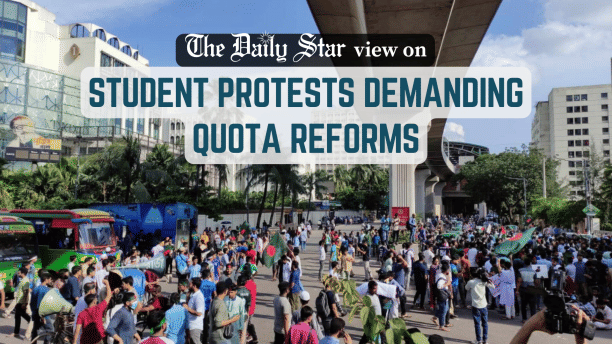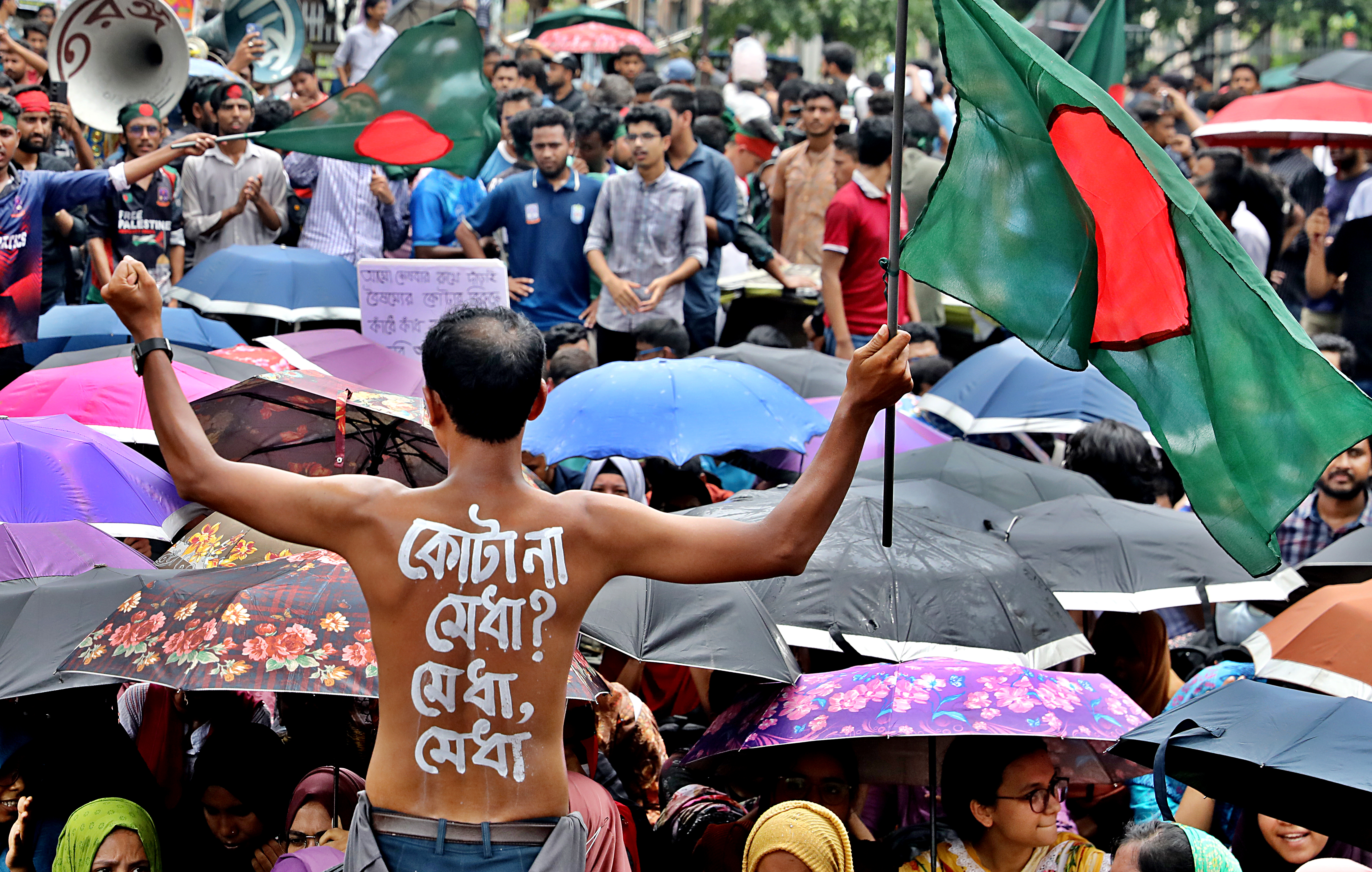Reforming the quota system is long overdue

The revival of the student movement for reformation of the quota system in public service was wholly predictable, given the way the government had reacted to the previous movement in 2018. Since, in totality, 55 percent of government jobs used to be reserved under the quota system—including 30 percent for freedom fighters' children and grandchildren—the protesters had legitimate grounds to demand a revaluation of the system. The glaring lack of good jobs in the country and the need to ensure that the majority of public-sector recruits enter the service on merit warrant such a demand.
During the initial stages of the 2018 movement, the government refused to have an open dialogue with the protesters, labelling them as being involved with vague conspiracies. Once the students refused to budge from their position, we saw how Chhatra League cadres unleashed severe beatings upon protesters, with law enforcers often acting as bystanders. When the protesters still refused to back down, the government decided to do away with all quotas altogether—which the protesters had never asked for. The decision was regressive in nature given that it failed to reserve any seats for marginalised groups that are necessary for their upliftment.
On June 5, 2024, the High Court declared the circular that cancelled the quota system as illegal. After the government appealed the ruling and the Appellate Division of the Supreme Court upheld the HC directive, students once again were forced to launch a movement. While we cannot condone the blockades being implemented by protesters, we do find their demands rooted in logic. Reserving 30 percent of government jobs for the children and even grandchildren of freedom fighters goes against the spirit of our independence. Our valiant freedom fighters laid down their lives for equality; and although we honour their memory and hold the deepest respect for them, continuing to provide such a huge number of seats for their grandchildren makes little sense at present.
But that's not all. The government needs to reevaluate—as it should have the last time around—the whole quota system. We have heard previously that many of the seats reserved for marginalised groups used to remain vacant, another fault line in the erstwhile quota system. So, the government should involve all stakeholders in dialogue to find a solution that suits the needs of our time. Neither doing away with all quotas, nor simply continuing with the previous quota numbers, are appropriate solutions. The government needs to figure out suitable quota figures for marginalised groups, while reserving the majority of seats for meritorious students. We cannot steer the nation towards greater heights without having efficient and committed public servants at the helm.



 For all latest news, follow The Daily Star's Google News channel.
For all latest news, follow The Daily Star's Google News channel. 


Comments